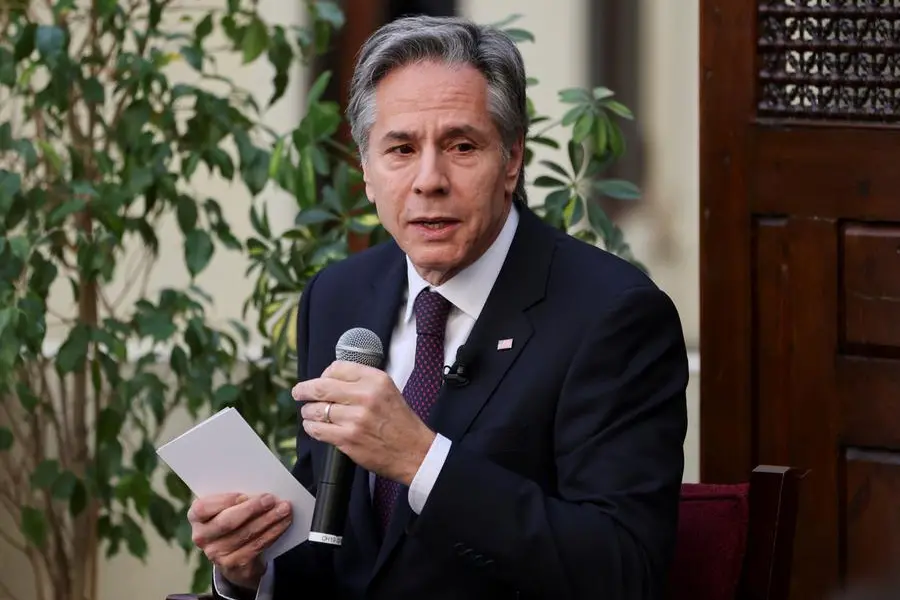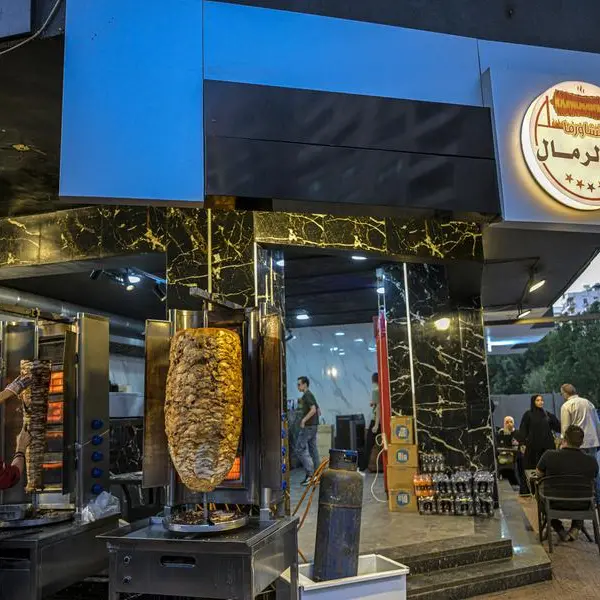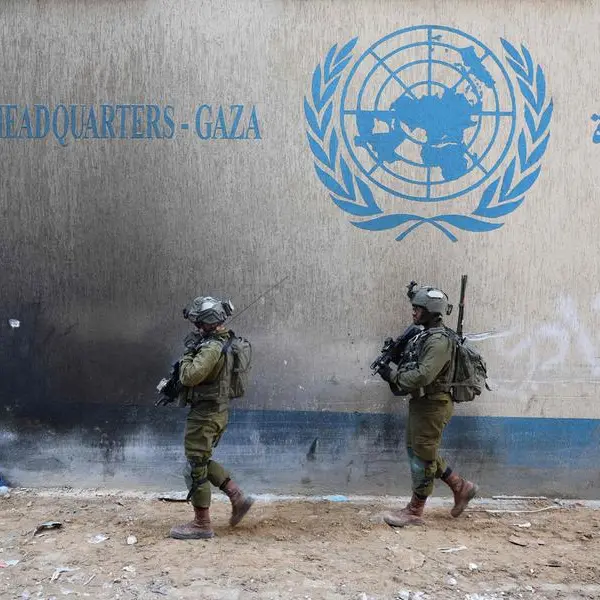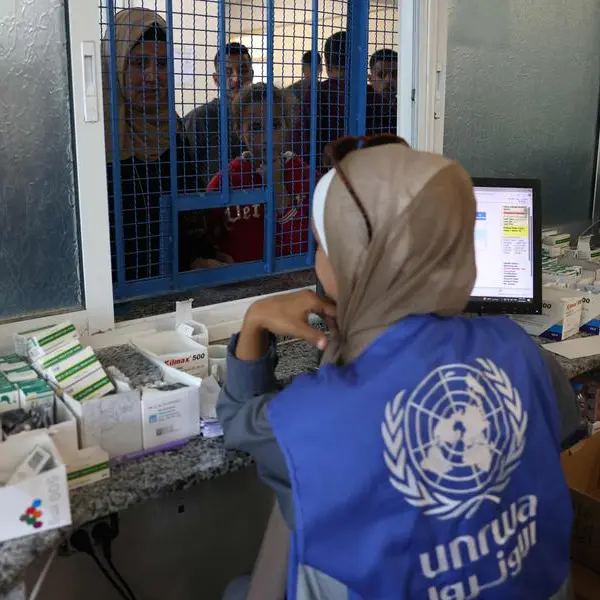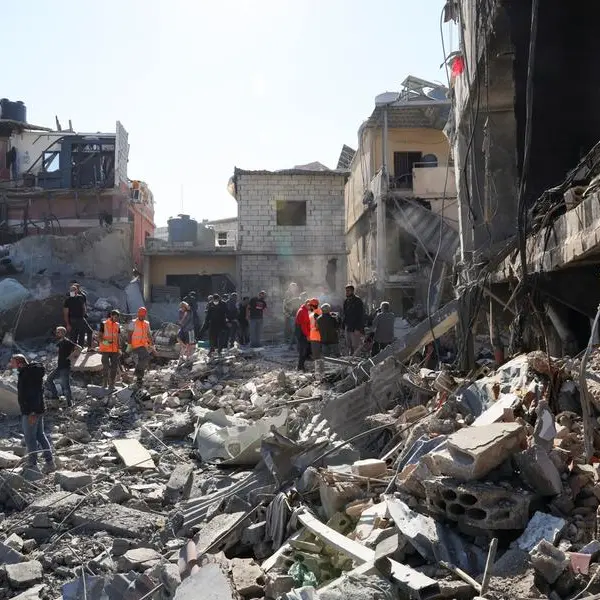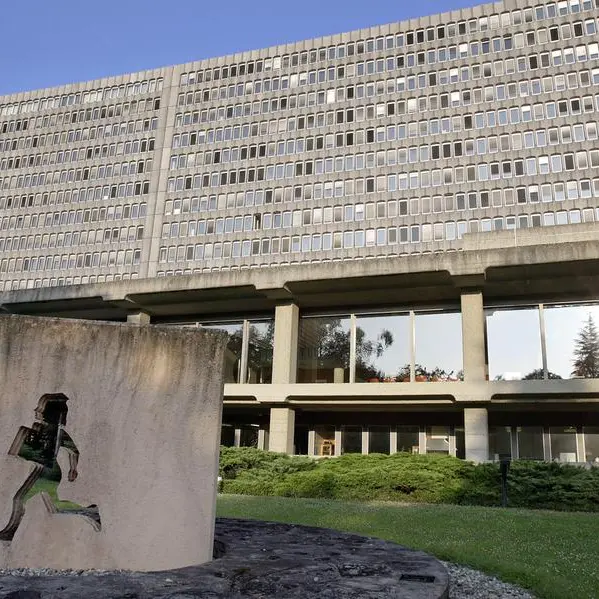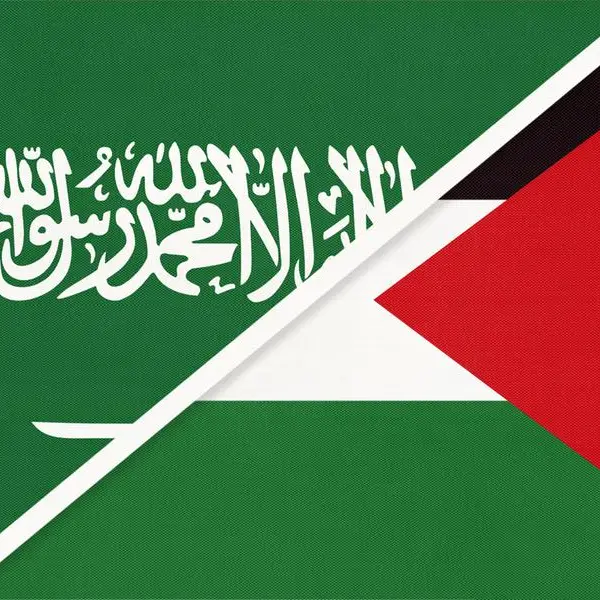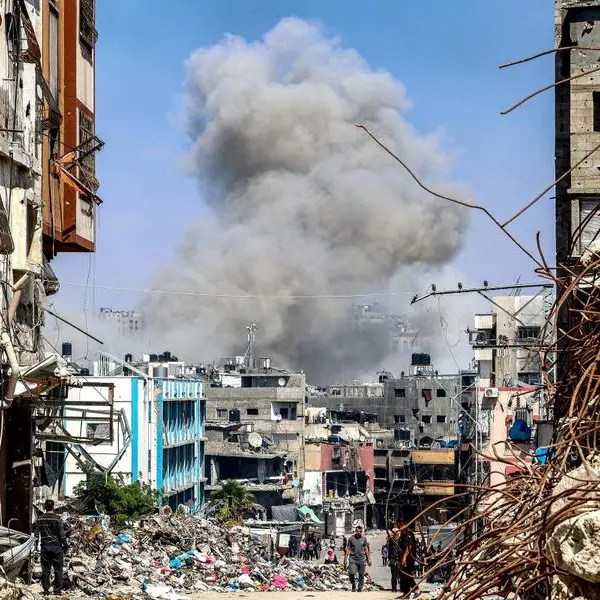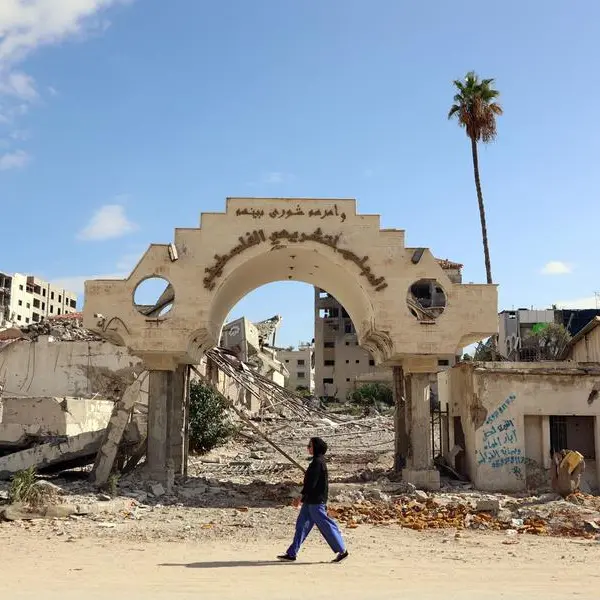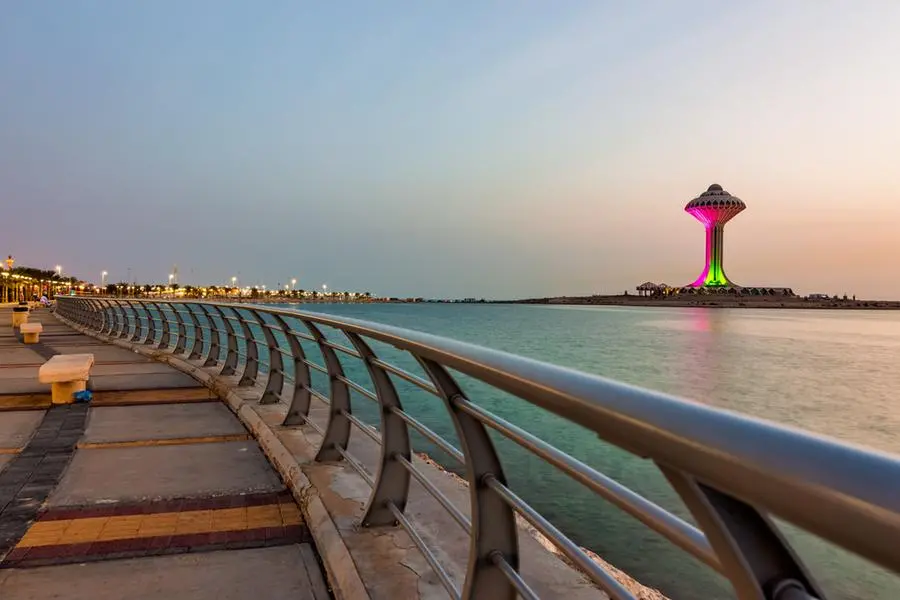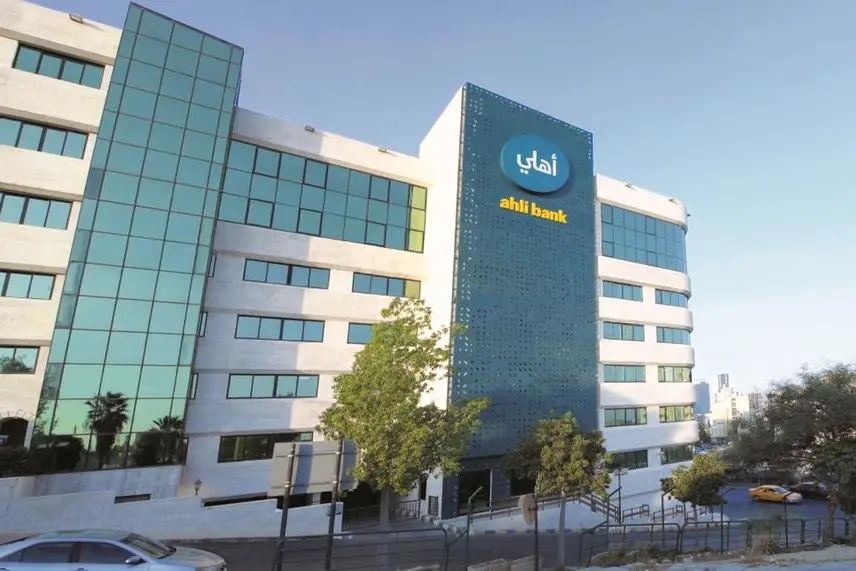PHOTO
U.S. Secretary of State Antony Blinken and Europe's top diplomat, Josep Borrell, were due in the Middle East on Friday to try to halt the spillover of the conflict in Gaza to the Israeli-occupied West Bank, Lebanon and Red Sea shipping lanes.
The visits take place almost three months since the assault on southern Israel by Hamas militants from the Palestinian enclave sparked an Israeli offensive that has killed more than 22,000 Palestinians and left much of Gaza in ruins.
Israel, which says it has killed 8,000 militants since the deaths of 1,200 people in the Hamas attack on Oct. 7, announced a more targeted approach on Thursday as Blinken set off on a week-long tour of the region.
But Palestinians said there had been no let up in Israeli air strikes and shelling, with planes and tanks intensifiying attacks overnight on the densely populated areas of Al-Maghazi, Al-Bureij and Al-Nusseirat in the centre of the coastal strip.
Four people were killed in an air strike on a street in Al-Nusseirat. Further south, where hundreds of thousands of Gazans have moved on Israeli advice, six Palestinians were killed in a strike on Khan Younis, local health officials said.
Artillery shelling had renewed near the Al-Amal hospital in Khan Younis, the Palestinian Red Crescent said, and aid agency MSF said its operations were shrinking towards the border with Egypt.
"We are being pushed into a corner in the south of Gaza, in Rafah, with fewer and fewer options to provide the healthcare that people so desperately need," Jacob Burns, project coordinator in Gaza, wrote on social media.
Israel's military said it had struck more than 100 targets throughout Gaza in the past 24 hours, destroying gunmen who had tried to attack a tank in Al-Bureij and others in Khan Younis.
The war in Hamas-run Gaza has stoked violence in the West Bank, which is governed by its rivals Fatah and is another territory where Palestinian hopes for statehood have been crushed since the last round of U.S.-mediated talks on a solution broke down in 2014.
The Palestinian health ministry said a 17-year-old was killed and four other Palestinians wounded by Israeli army gunfire in the West Bank town of Beit Rima. A military spokesperson said troops shot at Palestinians who threw petrol bombs at them.
The U.N. rights office has said Israeli forces are increasingly using military tactics in the West Bank and that 300 Palestinians have been killed, including 79 children, with eight or nine of the people killed by Israeli settlers. Two Israelis, one civilian and one military, have also been killed.
DON'T EXPECT IT TO BE EASY
Blinken is due to visit the West Bank during his regional tour that begins on Friday with a visit to Turkey, which is among countries that have offered to mediate. He will also visit Israel, Jordan, Qatar, the United Arab Emirates, Saudi Arabia and Egypt and make a stop in Greece.
"It is in no one's interest, not Israel's, not the region's, not the world's, for this conflict to spread beyond Gaza," State Department spokesperson Matthew Miller said, adding that Blinken would discuss steps to avoid escalation that he did not specify.
"We don't expect every conversation on this trip to be easy," Miller told reporters on Thursday.
Borrell, the European Union's foreign policy chief, was due in Lebanon on Friday to discuss the situation at the Israeli-Lebanese border and the importance of avoiding regional escalation by stepping up diplomatic efforts, the EU said.
Hamas, which is sworn to Israel's destruction, is backed by Iran. Other Iranian-backed militants across the Middle East have launched what they say are revenge attacks for Israel's avowed attempt to eliminate the Palestinian Islamist movement, targeting U.S. forces in Iraq and Syria and Israel from Lebanon.
The leader of Lebanon's powerful Iran-backed Hezbollah movement, Hassan Nasrallah, was due to speak on Friday after warning on Wednesday that his militia "cannot be silent" over the killing of Hamas deputy leader Saleh al-Arouri in Beirut.
Hezbollah has had nearly daily exchanges of shelling with Israel across Lebanon's southern border since the Gaza war began. Israel neither confirmed nor denied assassinating Arouri.
The Iran-aligned Houthis, who control much of Yemen, have fired on commercial vessels in the Red Sea since Nov. 19, forcing vessels to take longer routes in a blow to world trade.
A Houthi drone boat packed with explosives detonated in the Red Sea on Thursday but caused no damage or casualties, the U.S. Navy said.
ANOTHER HOSTAGE DECLARED DEAD
Under international pressure to shift to less intense combat operations and in the face of economic challenges, Israel has been drawing down its forces in Gaza to allow thousands of reservists to return to their jobs. It has listed 175 soldiers as killed in action in Gaza.
On Thursday, Defence Minister Yoav Gallant outlined what he said was a new stage, with operations in the north to include raids, demolishing tunnels, air and ground strikes.
In the south, where most of Gaza's 2.3 million population now live in tents and other temporary shelters, the focus would be on wiping out Hamas leaders and rescuing some 132 Israeli hostages remaining of some 240 abducted on Oct. 7.
A 25th hostage had been declared dead, a government spokesperson said on Friday.
Gallant said Gaza would be run by Palestinian bodies after the war so long as there was no threat to Israel, but it was not clear how this would happen. Prime Minister Benjamin Netanyahu has ruled out a role for the internationally recognised Palestinian Authority in the West Bank.
(Reporting by Mohammad Azakir in Beirut, Nidal al-Mughrabi in Cairo, Arafat Barbakh in Gaza, Maayan Lubell at the Israel-Gaza border, Dan Williams and Emily Rose in Jerusalem, Enash Alashay in Cairo, Clauda Tanios in Dubai and Trevor Hunnicutt and Jonathan Landay in Washington; Writing by Michael Perry and Philippa Fletcher; Editing by Raju Gopalakrishnan and Timothy Heritage)
